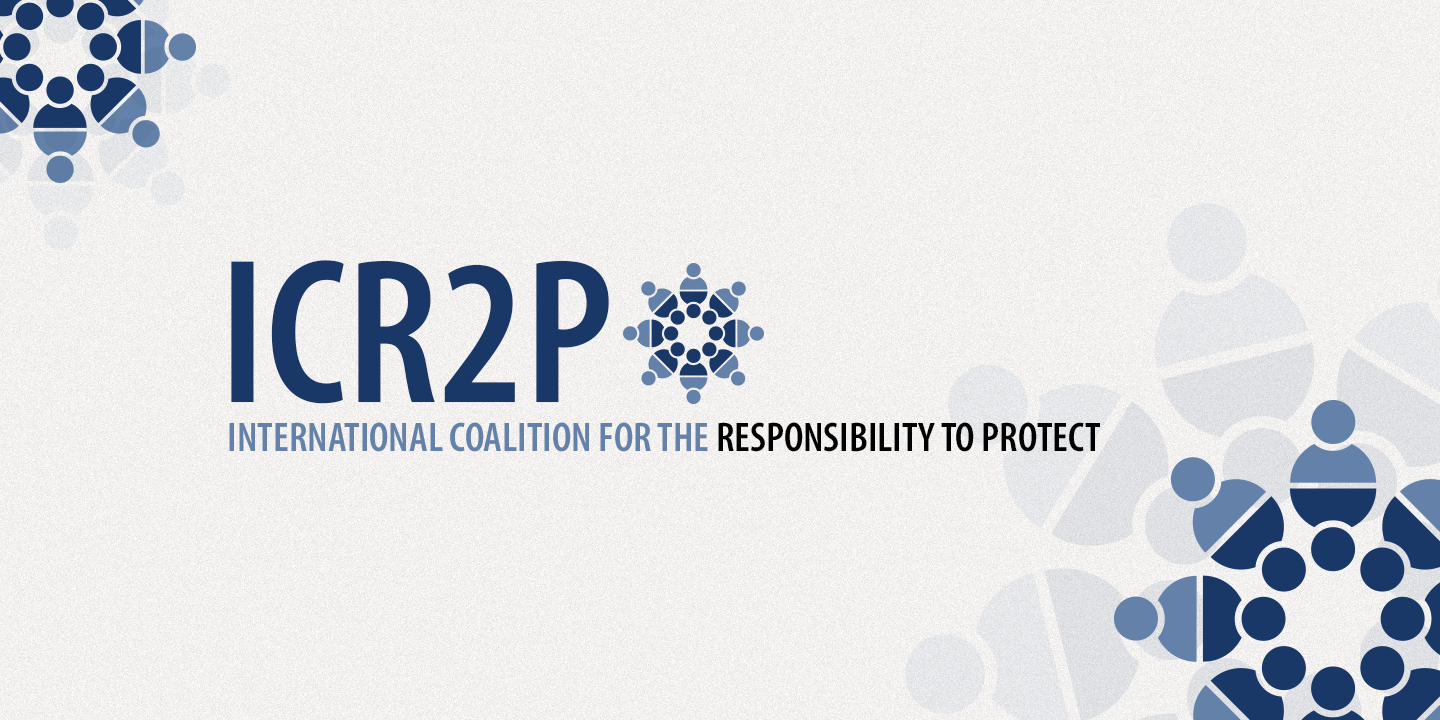

Statement by the International Coalition for the Responsibility to Protect regarding the Interactive Dialogue with the UN Special Adviser on the Prevention of Genocide at the 53rd session of the Human Rights Council
On 4 July 2023, during its 53rd session, the UN Human Rights Council held an Interactive Dialogue with the UN Special Adviser to the Secretary-General on the Prevention of Genocide, Ms. Alice Wairimu Nderitu. The International Coalition for the Responsibility to Protect (ICR2P) issued the following statement regarding the Interactive Dialogue.
This statement is delivered on behalf of the International Coalition for the Responsibility to Protect, also known as ICR2P. ICR2P is a community of commitment made up of over 65 civil society and non-governmental organizations from around the world dedicated to the promotion of human rights, the prevention of atrocities, including the crime of genocide, and effective and consistent implementation of the Responsibility to Protect principle.
ICR2P warmly welcomes this interactive dialogue with Ms. Alice Nderitu, UN Special Adviser on the Prevention of Genocide, during the 53rd session of the Human Rights Council. The crime of genocide, and indeed all atrocity crimes, are not isolated or random incidents. They are instead preceded by a range of early warning signs, including hate speech, discrimination and marginalization of particular communities, systematic human rights violations, and a climate of impunity.
Therefore, the prevention of genocide is a particularly important topic for the Human Rights Council to discuss on a regular basis. The UN human rights system is of vital importance to assisting states in identifying early warning signs and in implementing prevention and mitigation strategies at a national level. Through the work of the Office of the UN High Commissioner for Human Rights, Special Rapporteurs, Treaty Bodies, the Universal Periodic Review process and other Geneva-based human rights mechanisms and procedures, states can better understand and identify existing gaps and opportunities to mitigate unique risk factors for genocide and all other atrocities particular to their country. The recent referral by the Committee on the Elimination of Racial Discrimination of their recommendations on XUAR to the UN Joint Office on Genocide Prevention and the Responsibility to Protect is a welcome step in this regard, and we call on the Special Adviser to swiftly explore follow-up action in line with her mandate.
ICR2P hopes that today’s interactive dialogue serves as an opportunity for the international community to reinvigorate commitments to cross-cutting approaches for the prevention of genocide: a crime that diminishes us all and challenges the very sense of what makes us human. ICR2P calls on UN member states to ensure existing early warning is leveraged effectively to prevent the crime of genocide and to prevent aspiring genocide perpetrators from harvesting fear and targeting the vulnerable.
It is national governments that have the primary responsibility to prevent and protect their population from the crime of genocide and other atrocity crimes, as well as to respect human rights. In this regard, technical assistance and capacity building provided to member states, including that provided through the OHCHR, plays a critical role in combatting the perpetration of genocide, including at the earliest possible stages.
While there exists broad understanding of how to utilize capacity building assistance to help prevent human rights violations, this does not necessarily extend to atrocity prevention and genocide prevention specifically. ICR2P hopes that the linkages between Geneva and national implementation of R2P are further strengthened by adopting capacity building measures that are gender inclusive and look at a broad spectrum of national processes, policies and institutions linked to atrocity prevention and mitigation strategies. Greater synergies between OHCHR and the important work of the UN Office on the Prevention of Genocide and the Responsibility to Protect can also greatly help in designing capacity-building programs and assistance which focus specifically on the structural prevention of genocide on a domestic level. ICR2P calls on member states to take proactive steps to ensure such synergies and to dedicate or increase funding for relevant programs.
We also welcome today’s discussion of new and emerging technologies and the significant impact they can have on genocide prevention efforts and on the risk of genocide. New technologies – from social media platforms and surveillance tools to drones and artificial intelligence – can be utilized in a manner that may exacerbate risk factors for genocide and accelerate the perpetration of abuses against populations such as through the proliferation of hate speech and outright genocide denial, the use of surveillance technology in campaigns of persecution, and restrictions in the flow of credible information. However, we have also seen the positive effects of emerging technologies as they can conversely be a tool in the prevention of genocide and other atrocities. The use of mass media, digital platforms, and geo-spacial technology for example, can help cultivate an inclusive public discourse, document abuses, compel humanitarian responses, and address early warning signs of potential atrocities.
ICR2P therefore calls on member states to work towards collectively harnessing the potential of new digital technologies as a tool for genocide prevention, and as a resource in blocking those manipulating it for malignant purposes. ICR2P further calls on member states to leverage recommendations in the UN Plan of Action and Strategy on Hate Speech in this regard.
In a time of global crisis – with unprecedented levels of violence, atrocities and displacement – a cohesive UN system working collectively and holistically towards the prevention of genocide and other atrocities is not only critical, but existential. ICR2P stands ready as a partner for all member states and the international community as a whole to ensure that our enduring responsibility to protect and prevent the horrors of genocide is upheld consistently and robustly.
A condensed version of the statement is available to watch below.
Related Content


